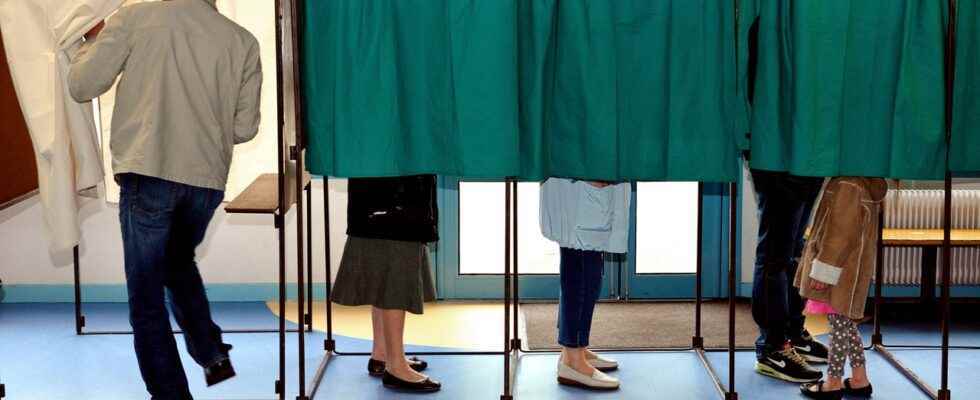Europe 1 with AFP
modified to
4:35 p.m., September 23, 2022
Russian annexation referendums began Friday in four regions of Ukraine wholly or partly controlled by Moscow, on the 212th day of the Russian invasion of the country. These polls are described as “simulacra” by kyiv and the West and which, moreover, mark a major escalation of the conflict. At the same time, kyiv claims new advances by its army in the east of the country.
At the same time, the mobilization of hundreds of thousands of Russian reservists continued in Russia, the Kremlin seeking a parade against the advances of the Ukrainian army, strong in Western arms deliveries. kyiv forces, which carried out a lightning counteroffensive in the northeast this month, said they were continuing to push back Russian troops.
Information to remember:
– Beginning of annexation referendums
– UN commission of inquiry reports ‘war crimes committed in Ukraine’
– Ukrainian forces continue their advance
– Partial mobilization of Russians continues, as some attempt to leave the country
Annexation referendum: a door-to-door ballot
A UN commission of inquiry has acknowledged that “war crimes have been committed in Ukraine”, referring in particular to Russian bombardments on civilian areas, executions, acts of torture, ill-treatment and sexual violence . International criticism has not stopped Moscow from pursuing its plans for referendums in Ukraine.
The votes, which began at 5 a.m. GMT, will end on September 27 in the separatist regions of Donetsk and Lugansk (east), and in areas under Russian occupation in the regions of Kherson and Zaporijjia (south). The ballot, announced urgently this week against the backdrop of Ukrainian military successes, is notably by door-to-door, according to images from Russian media. Authorities said it was a security measure.
Russian television repeatedly broadcast images of voters voting in mobile ballot boxes in halls or building courtyards. Hundreds of polling stations must be opened in the four territories, and others in Russia to allow displaced people to vote. “We hope that after the referendum, they will stop bombing us, that we will have peace and order,” Vladimir Choutov, from the Lugansk region and who came to vote at the Donetsk representation, told AFP. in Moscow.
China calls for respect for Ukrainian territorial integrity
Without going so far as to denounce the polls, China, Moscow’s closest partner, nevertheless went there with its criticism, calling for respect for territorial integrity. A sign of this approach, a surprise meeting took place on Friday in New York between Chinese Foreign Minister Wang Yi and his Ukrainian counterpart Dmytro Kouleba.
The polls were decided after the dazzling Ukrainian counter-offensive in early September, recapturing the Kharkiv region in the northeast, and which kyiv wants to continue towards Lugansk, Donetsk and Kherson.
Ukrainian forces continue their advance
Ukraine claimed responsibility on Friday for taking Yatskivka on the eastern bank of the Oskil River in the Donetsk region (east), which seems to confirm the continued advance of kyiv forces. She also says that she has advanced south of Bakhmout, an eastern town that the Russian army has been trying to take for months without success. “The situation in the north (of Donetsk) is extremely difficult,” Donetsk separatist leader Denis Pushilin admitted on Thursday evening.
In the Lugansk region, Andrei Marotchko, representative of the pro-Russian military, reported on Ukrainian bombardments, noting that the kyiv forces “want to do everything to derail the referendum”. The hasty announcement of these elections was accompanied by that, Wednesday, by Vladimir Putin to decree the immediate mobilization of at least 300,000 reservists. He also threatened to use nuclear weapons.
These Russians who respond to the call for mobilization
On images broadcast on social networks and claiming to show the mobilization in a locality of Yakutia, in Siberia, men with closed faces kissed their relatives before boarding a bus. In another video posted by the popular Telegram channel Mash, a line of men can be seen standing in front of a troop transport plane on a tarmac at night.
Joined by AFP, Konstantin, 29, said he received his summons to his parents’ home in Rostov-on-Don, in southwestern Russia, 120 km from the Ukrainian border. “I’m still in shock,” he says. “I’m not going to hide but I’m not jumping for joy either”.
Others were given a summons after being arrested during demonstrations against the mobilization on Wednesday. “I expected the usual (procedures): the arrest, the police station, the court. But being told: + Tomorrow you are going to war +, (…) that was a surprise” , told AFP Mikhail Suetin, 29, who refused to sign the document.
Many Russians leave their country
The announcement of the mobilization also convinced many Russians to leave the country, without it being possible to quantify the extent of the phenomenon. Kazakhstan border guards reported an influx at the Russian-Kazakh border and assured that the situation “was under special control”.
A person interviewed by AFP on condition of anonymity said he queued eight hours to enter Kazakhstan, another twelve hours to reach Mongolia. Finland has reported a doubling of entries at the Russian border since the announcement of the mobilization.
